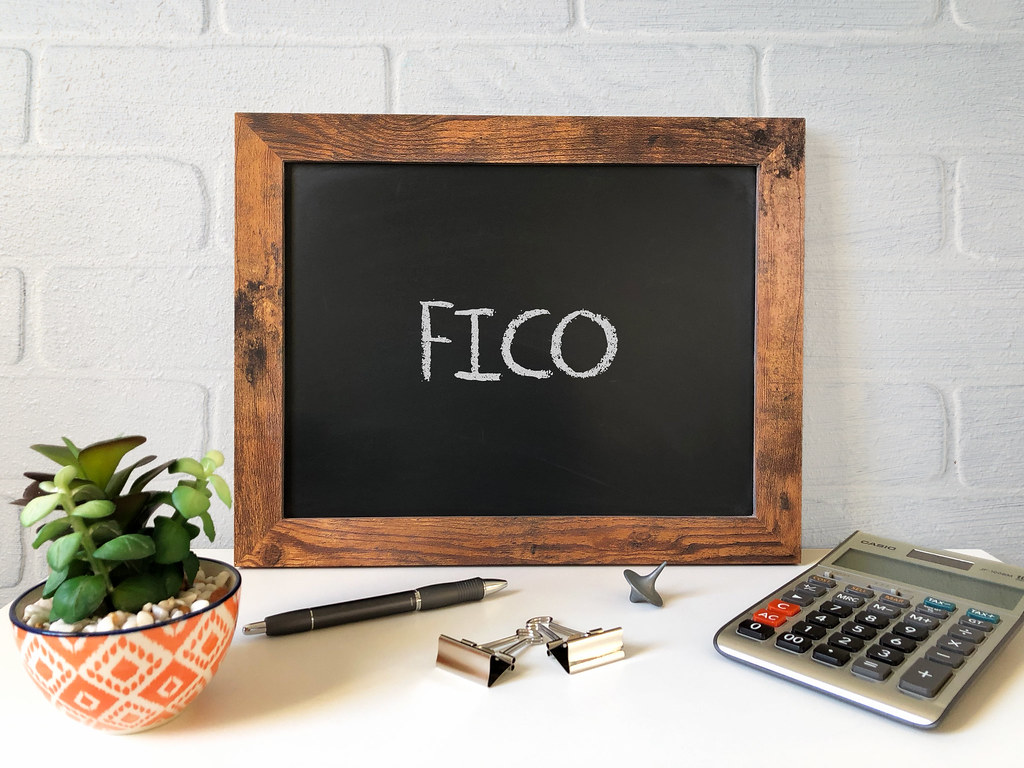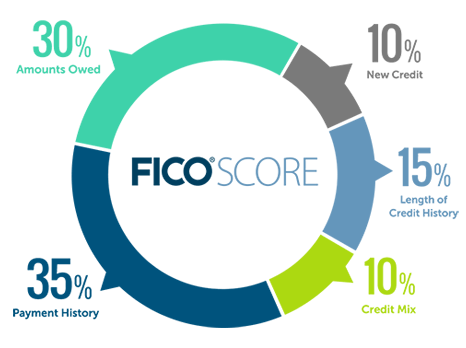
How the Credit Score Works
Understanding how the credit score works is important in effectively raising your credit score that would allow you to access to higher-end premium credit cards that offer much more lucrative rewards and bonuses.
The banks rely on FICO score to check your credit worthiness. Although, the intricacies of the system is a mystery, we can learn enough about the algorithm to influence our score based on our actions and conditions. There are different factors that affect your credit score, and each of them has different weight on how they will affect them. The factors are listed below in order of importance:

Credit Score Factor- Payment History (35%)
This factor determines how on-time your payments are. It’s only affected negatively when the payment is missed by at least 30 days. A missed payment will be stuck on your record for 7 years. This is the heaviest factor that affects your score, so always pay your bills on time! You do not need to pay ANY interest to raise your credit score.
Amounts Owed (Utilization Rate) (30%)
Utilization rate is the amount of credit used over the amount of credit available. The formula would be: (credit used / credit limit). Obviously, the credit you’d use on your credit card would vary each month. The less you use your credit, the faster you’d be able to increase your score.
You should target <10% utilization rate for the best results and no more than 30% before it starts to negatively affect your score.
A 0% utilization rate should be avoided at the early stage of building credit because it will be reported as the credit card has not been used at all, which will hamper the speed of credit building. However, it’s still better than having a high utilization rate (>30%).
So, how can we aim for a very small credit utilization rate and still earn meaningful rewards from a credit card? Every credit card will have a “statement date” that will appear on some day of each month. We should take note the difference between statement date and due date.
Utilization rate is not recorded until the statement state closes. We can take an extreme example of someone maxing out a credit card with $10,000 limit. If they manage to pay $9900 before the statement date, their utilization rate will lower from 99% to 1%.
The best times to pay credit card bills in full are:
- If recorded utilization is <10%; after the statement date closes, and before the due date.
- If recorded utilization is >10%; pay off partially until utilization rate is <10% before statement date >> wait until statement date closes >> pay in full before due date.
Length of Credit History (15%)
This is basically how long you have used credit. The longer the history, the more your score will improve. A “good” age of credit is around 7 years or longer. This is the factor where you can’t do much to improve except to let time do its work.
However, this is where the misconception of opening a new account will lower your credit score. This is due to the fact that a new account will decrease the length of your credit history.
For example, if you have an account that is 2 years old, and you open a new account, you’ll now have 1 year of credit history.
The effect will diminish once you have a more established credit account with a long history. This is why it’s very important to not close your very first credit card.
Your very first credit card builds the foundation of your credit history, and as long as it has no annual fee, it doesn’t hurt you to keep it. Closing your first card will negatively affect your credit history.
Another thing to be aware of is that finishing off an installment loan like auto loan or student loan will lower your credit score temporarily because it’s equivalent to closing an account and erasing your payment histories with it.
Opening more credit card accounts and letting them open for a long time is actually more beneficial to your credit score!
Credit mix (10%)
Credit mix measures how many accounts and how varied your account types are. The more differing type of credits you have, the more positive impact it has on your score.
Different type of credits are revolving (credit cards) and installment (auto, mortgage, student loans).
Since it only accounts for 10% of the credit score, I wouldn’t worry about not having variety of debt types. Having credit cards opened alone is good enough to be able to build a nice score.
New Credit (Hard Inquiries) (10%)
Hard inquiry is when a financial institution requests an inquiry to the credit bureaus to check for your credit background which will lower your score by a few points. Applying for a credit card and any other type of loans will result in a hard inquiry in most cases whether you get accepted or not. This is also known as the hard ding.
Another type of inquiry, soft inquiry, will not affect your credit score. Soft inquiry examples are checking your credit score by yourself or opening most checking accounts.
Again, as it only accounts for 10%, it wouldn’t affect your credit score as much.
But, if you plan to apply for a mortgage, it’s best to avoid having multiple inquiries for at least a year within your application period as it can negatively impact your chances of getting your loan approved!
Now we can see that the factors we can control are the heaviest factors (payment history and utilization rate), which make up for 65% of credit scoring system.
Other smaller factors require time to help your score. As long as you focus on paying on time and use a small amount of your credit limit, your score should increase nicely!
Conclusion
Now that the credit score system is at a clearer picture, you can take advantage of the algorithm like paying most of your credit used before the statement date to get a much more favorable credit utilization score and raise your credit score further and faster. Knowing it also clear up confusion that you always have to be in debt to maintain a good credit score.
But, knowing about it also won’t get you far… unless you learn how to start building your credit score!
